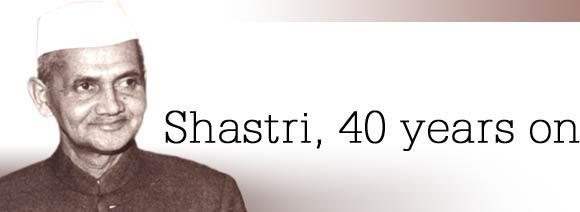 |
|
|||
|
He shared Mahatma Gandhi's birthday, and the Mahatma's ethos. He was a man so devoid of the strappings of power that when he once resigned from as minister and vacated his official residence, he did not have a home. He was a man so simple that he was the unanimous choice as prime minister for a nation grappling with the question: After Jawaharlal Nehru, who? He was a timid man who gave Pakistani aggressors a lesson they would not forget in the 1965 war. He was a man who symbolised honesty, integrity and efficiency in public life. He was a prime minister and leader India lost prematurely, when he died in Tashkent 40 years this day -- January 11, 1966 -- just after India and Pakistan had signed a historic agreement. Forty years later, Lal Bahadur Shastri remains a symbol of hope: That if our leaders and citizens follow his example, India will be a better place.
Why has history forgotten this giant?
The politician who made no money Trouble in Tashkent Tell us what you think was Lal Bahadur Shastri's most enduring legacy. |
||||
| |||||||||||||||||||
|
|
|||